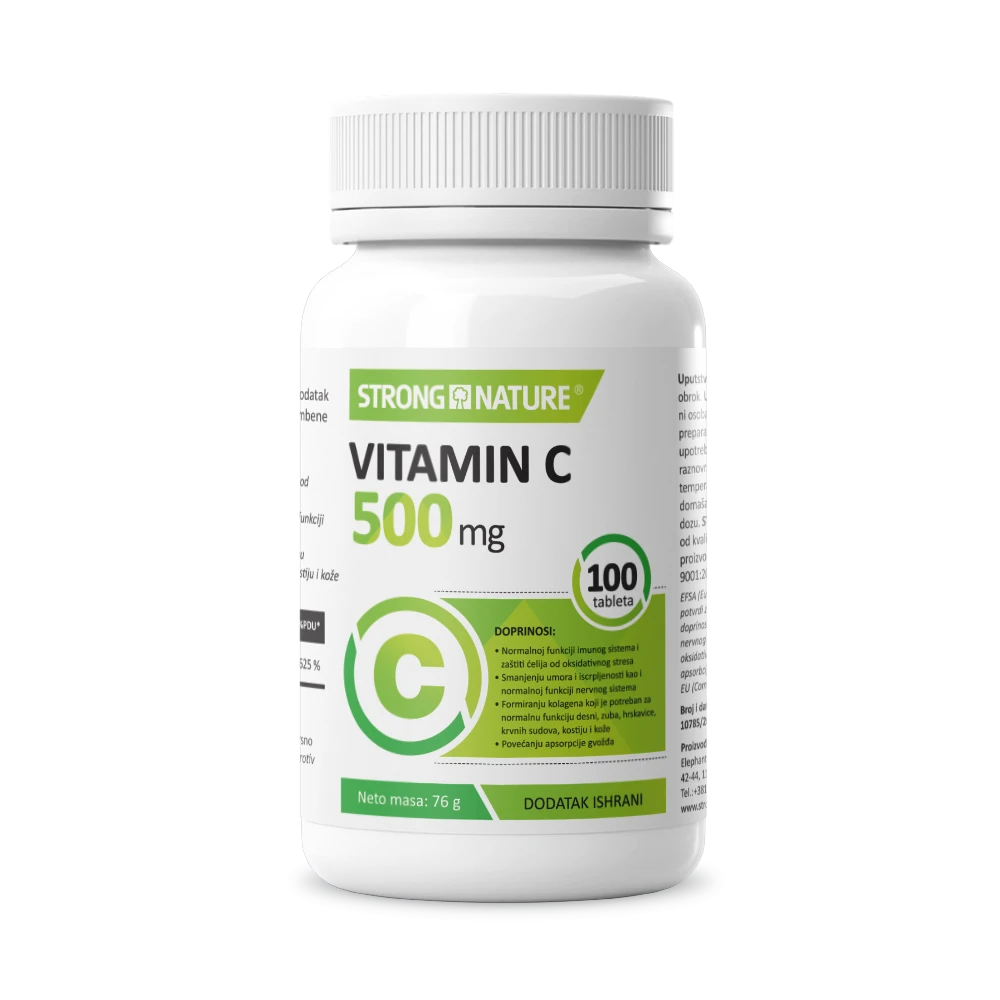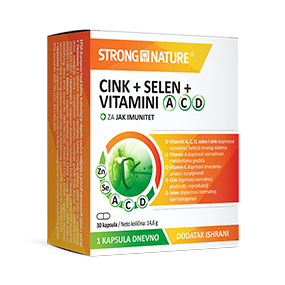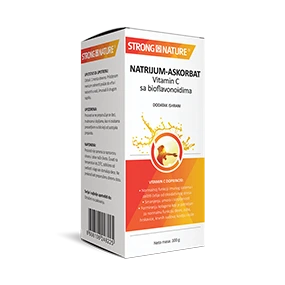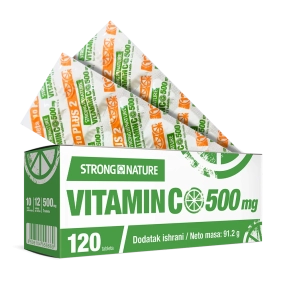Vitamin C is an essential nutrient – our body cannot synthesize it, so it must be obtained through a healthy and balanced diet. It is necessary for the normal growth and development of our body's cells. Vitamin C participates in numerous metabolic processes and is responsible for maintaining vitality and strengthening the body's defense mechanisms. Vitamin C is an extremely strong antioxidant - it protects cells from oxidative stress caused by the negative effects of free radicals. Free radicals damage biologically important molecules (DNA and RNA nucleic acids, proteins, and lipid components), reducing their biological value. The presence of vitamin C in collagen biosynthesis is essential. Collagen is the main structural protein responsible for the construction of connective tissue, skin, and other components of the musculoskeletal system.Collagen participates in the formation of cartilage, ligaments, tendons, muscles, nerves, and subcutaneous tissue Vitamin C is very important for the health of teeth and gums, showing favorable effects in cardiovascular diseases. Recent pharmacological studies show a connection between oxidative stress and the onset of cancer, with vitamin C contributing to the protection of cells from oxidative stress. Vitamin C also helps improve immune function - it alleviates symptoms and shortens the duration of infections, especially of the upper respiratory tract. It increases iron absorption and participates in the synthesis of hemoglobin, necessary for the maturation of red blood cells. It affects the improvement of the body's overall condition, reducing fatigue and exhaustion.
Vitamin C deficiency:
-
Causes weakened defense mechanisms of the body
-
Increases the risk of developing cardiovascular problems (atherosclerosis, hypertension, heart attack)
-
Slows down wound healing and recovery after illness
-
Leads to damage of teeth, gums, bones, skin, and muscles
-
Contributes to the occurrence of oxidative stress
-
Increases the risk of anemia formation
 English
English











